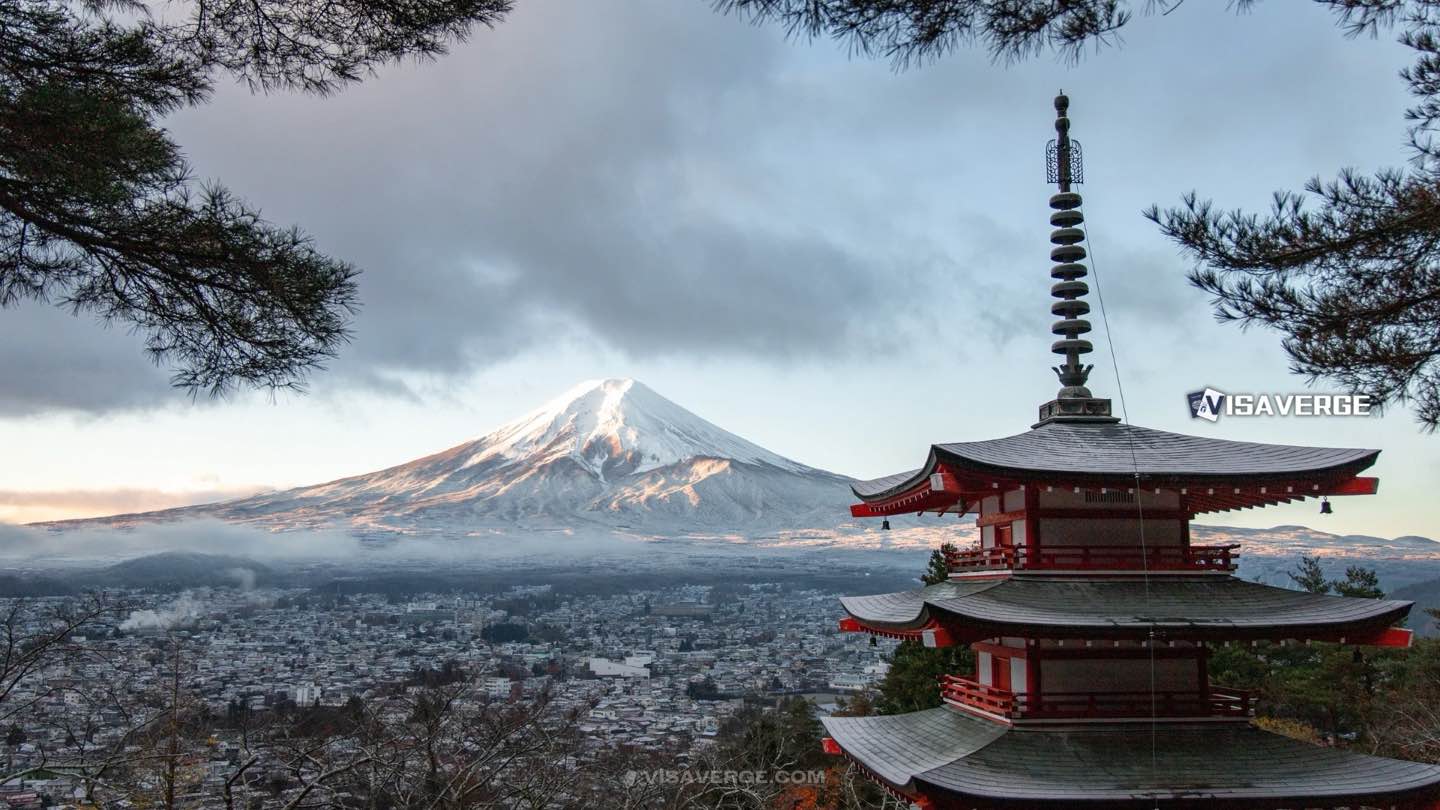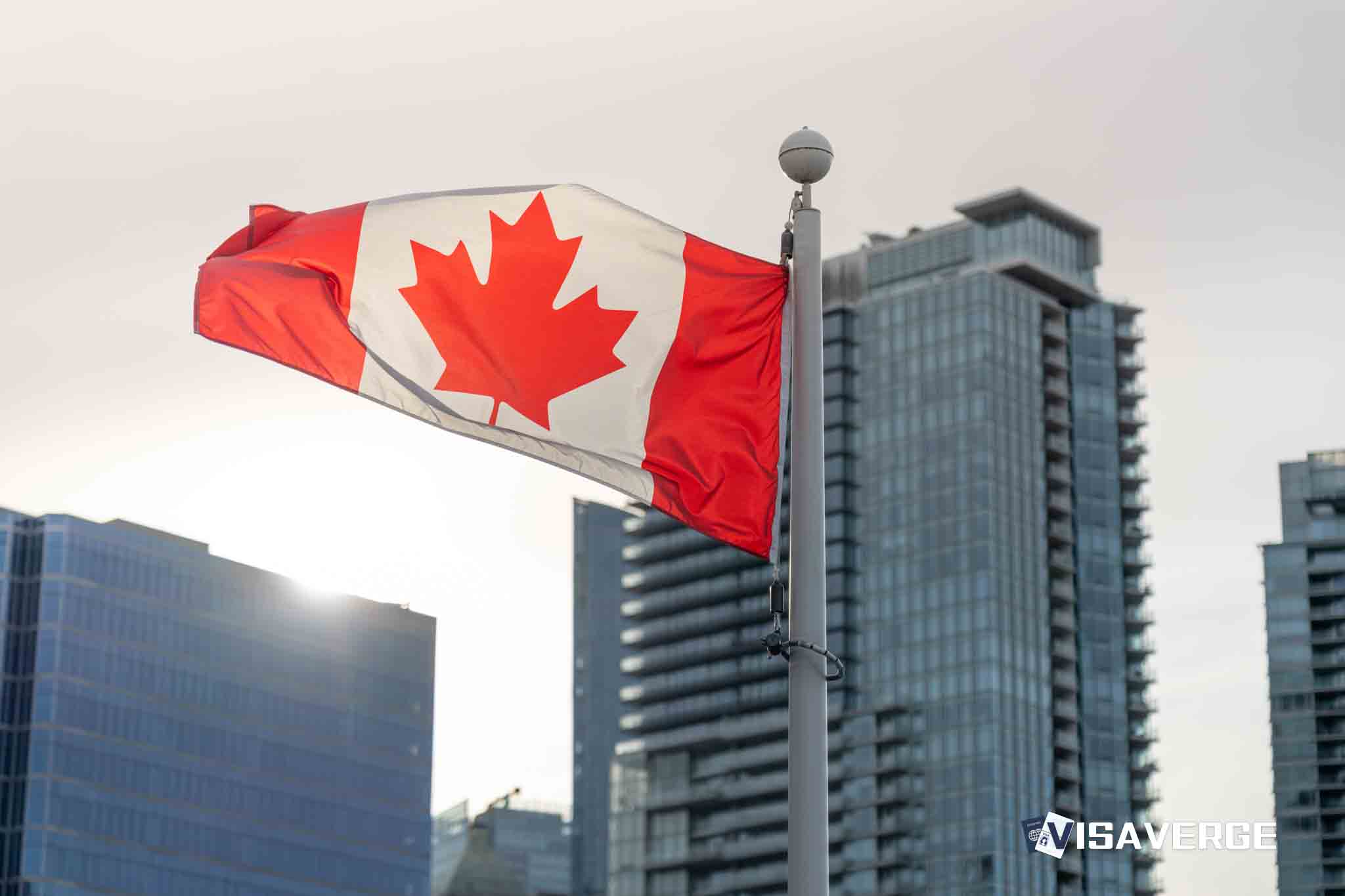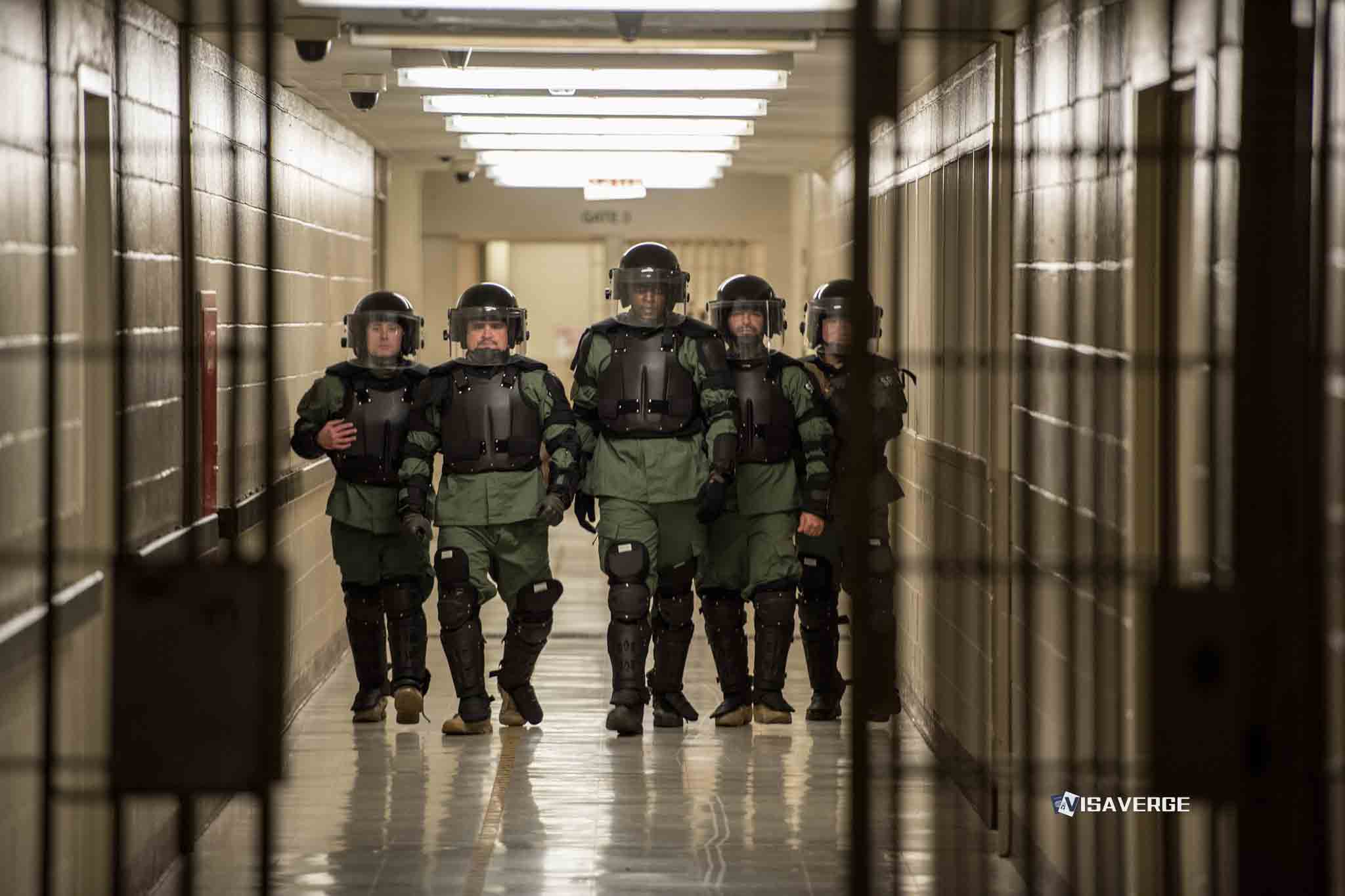Key Takeaways
• In May 2025, 59 white South Africans received refugee status in the U.S. under a Trump administration executive order.
• The program sparked global debate, accusations of racial favoritism, and worsened U.S.-South Africa diplomatic and trade relations.
• Critics highlight contrasting U.S. treatment of Black and brown refugees, while supporters argue credible violence claims warrant protection.
In May 2025, debate broke out around the world after President Trump’s administration gave refugee status to 59 white South Africans, mostly Afrikaners, who arrived in the United States on May 12. The move led to sharp arguments, bringing politicians, journalists, and the public into a heated conversation about race, humanitarian needs, and international diplomacy. Businessman and television personality Kevin O’Leary stepped into this debate, throwing his support behind the decision while speaking on a CNN panel that quickly grew tense.
This story combines sensitive topics, including the meaning of refugee status, United States asylum laws, and South Africa’s troubled history of race relations. It also raises questions about whether America’s refugee program is fair or if selective policies could hurt its reputation and global ties.

President Trump’s Refugee Move for White South Africans
The main event happened in early May, when 59 white South Africans arrived in the United States under a new refugee program started by the Trump administration. Most of these newcomers are Afrikaners, descendants of Dutch settlers whose first language is Afrikaans. They were allowed into the country after President Trump said they were in danger in their home country, South Africa, because of their race.
In February 2025, President Trump signed an executive order that created this special refugee pathway for white South Africans and also cut off all U.S. funding to South Africa. According to White House deputy chief of staff Stephen Miller, this first group of refugees was just the beginning. He explained that there would be “a much larger-scale relocation effort” aimed at the European-descended Afrikaners.
President Trump said his decision was based on reports of violence against white farmers. He described the situation as a possible “genocide,” saying, “White farmers are being brutally killed and their land is being confiscated in South Africa.” This language, used by the White House, repeated claims made by some conservative groups, but it also quickly caused alarm among international observers and government leaders.
Understanding Refugee Status — Who Qualifies?
Refugee status is an international legal way for people to get protection in another country when they cannot return home safely. Under U.S. law and the terms of the 1951 Refugee Convention, a refugee must show they have a “well-founded fear” of being persecuted for reasons such as race, religion, membership in a specific group, political beliefs, or nationality.
In this situation, President Trump’s executive order gave white South Africans the chance to seek refugee status by showing they face threats because of their race. Their applications cited recent incidents of violence and land policies in South Africa that target white landowners, especially Afrikaner farmers.
Supporters argue this fits the definition of a refugee, noting that any group facing targeted violence and discrimination deserves legal protection. However, critics claim that other forms of hardship — like poverty, crime, or social tension — do not always meet the higher standard required for refugee status.
For readers interested in the legal definition of refugee status in the United States, the U.S. Citizenship and Immigration Services page on refugees and asylum gives a full explanation.
Kevin O’Leary’s Role in the Debate
Shortly after news broke, Kevin O’Leary went on CNN and defended President Trump’s position. O’Leary, best known as a star of “Shark Tank,” made his views clear: he believed the policy “has nothing to do with race.” He argued that the concerns raised by white South Africans are real and that the United States has a history of stepping in to help people suffering from violence and discrimination.
During the televised panel, things got heated. Other political experts and commentators pushed back, asking why this new policy focuses on white refugees from a stable country like South Africa, while the Trump administration, earlier in its term, paused or stopped refugee programs for people fleeing famines and wars in Black-majority countries, such as Sudan and the Democratic Republic of Congo.
O’Leary repeated his point that the move was about responding to a credible humanitarian crisis. He was quoted as saying the United States was acting “on the basis of need, not race,” and that he trusted the process that led to granting these refugee claims.
Why Critics Are Upset
The choice to grant refugee status to white South Africans while many Black and brown asylum seekers are turned away sparked outrage. Critics—both inside and outside the United States—described it as clear favoritism.
- South African President Ramaphosa spoke out strongly, accusing President Trump of putting politics ahead of facts. Ramaphosa called the Afrikaners who left “cowardly,” suggesting that the problems they face are not as urgent or life-threatening as claimed. He added that, in his view, white South Africans do not meet the strict definition of refugees under global rules, since they are not facing religious or political persecution.
- Vanessa Cárdenas, the Executive Director of America’s Voice, a group supporting pro-immigration policies, gave a blunt summary: “While they single out white Afrikaners for special treatment and resettlement, they falsely slander Black and brown refugees and immigrants as dangerous threats and ‘invaders.’”
- Other policy observers said the Trump administration’s earlier move to suspend broader refugee programs left thousands of people, including those escaping war zones and famine, stranded. In their eyes, suddenly opening doors for white South Africans looked like discrimination, not even-handed help for people in danger.
- Solidarity, a South African trade union with hundreds of thousands of Afrikaner members, released a statement that emphasized, “repatriation of Afrikaners as refugees is not a solution for us.” They said the problems in South Africa need local fixes and warned that relocation could break up families and weaken their community.
Diplomatic Fallout — U.S. and South Africa
As reported by VisaVerge.com, the refugee status decision also hurt ties between the United States and South Africa. President Trump has missed no words in criticizing President Ramaphosa’s handling of the situation. He even threatened to skip the G20 leaders’ summit in Johannesburg if “the situation is taken care of.”
This crisis also had economic fallout. President Trump’s administration put higher tariffs on goods coming from South Africa, making trade more expensive. In March 2025, the United States expelled South Africa’s ambassador, making the rift between the countries even wider.
South Africa’s government, in turn, accused the United States of interfering in domestic affairs and using refugee policy as a political tool. President Ramaphosa and his team prepared for talks with President Trump, with a meeting planned for the week of May 19, 2025.
The Larger Picture: Refugee Policy and Public Opinion
This story brings up tough questions about America’s role in the world. Should refugee status always be based on strict legal definitions, or should it change as world politics shift? Does the United States apply its laws fairly across race and nationality? Or do certain groups have an easier time gaining protection?
President Trump’s critics see the new policy as part of a pattern—one where some groups, especially white Europeans, are viewed as “deserving” while others face higher barriers. This is not the first time U.S. immigration programs have been accused of favoring some nationalities over others.
Supporters push back, saying that each refugee claim deserves an unbiased hearing and that, in this case, the White House responded to credible claims of targeted violence. Some note that the process for gaining refugee status is long and has many checks to prevent abuse.
Kevin O’Leary’s comments made headlines because they summed up the debate: is the policy about real humanitarian need, or is it shaped by politics and race? On the CNN panel, he tried to keep the focus on helping people in danger, but his critics kept bringing the discussion back to racial bias.
Case Numbers: South Africa’s Crime and Land Policies
Supporters of the policy point to statistics reported in South Africa. Violent crime remains a major problem, with some reports documenting hundreds of farm attacks and murders each year. Some right-wing organizations have used the term “genocide,” but other experts argue that this is an exaggeration and that South Africans of all backgrounds face a dangerous security situation.
Land policy is a second issue. The South African government has discussed new plans to seize land from certain owners, including some white farmers, and give it to previously disadvantaged groups. These plans, known as “land expropriation without compensation,” have made many Afrikaner landowners fear they could lose their homes and livelihoods.
However, South African officials argue that these plans are needed to fix injustice dating back to the country’s colonial past. Black and other non-white South Africans were forced off their land for decades, and leaders say current policies try to create fairness. Critics, mostly from Afrikaner groups, worry that their community is now being unfairly targeted for historic wrongs.
The Impact on Refugees: Life After Arrival
For the 59 white South Africans who have come to the United States under refugee status, life is just starting over. By law, new refugees take a series of steps, outlined by U.S. government refugee agencies. Usually, they work with resettlement agencies to find a home, learn English if needed, and get help finding a job. After one year, refugees can apply for a green card to become permanent residents.
The path is not easy. Starting a new life in a foreign country comes with challenges—adjusting to new cultures, finding steady work, and dealing with the trauma of leaving home.
Reaction among the wider South African community has been mixed. Some Afrikaners in South Africa feel let down by those who left, echoing President Ramaphosa’s comments. Others understand the desire to escape violent crime and uncertainty about the future.
Meanwhile, advocates for other refugee groups point out that many non-white applicants wait years for their cases to be heard. Some see this as proof that the United States still has a “two-track” system for people seeking safety, depending on their background.
Next Steps and Future Debates
With President Trump’s executive order still in effect, more white South Africans could follow. Stephen Miller indicated that the first wave of 59 refugees was just the beginning, raising the question: how many more will arrive, and how will this affect America’s refugee totals?
Leaders in both Washington, D.C., and Pretoria will need to decide how to handle the fallout. If the United States keeps tough trade measures in place and South Africa remains angry about the refugee program, it could damage not only diplomacy but also the chances of working together on bigger issues, such as trade, security, and health.
Within the United States, the debate will likely shape public views on refugee status for many years. Supporters want refugee laws to apply equally and fairly, regardless of skin color or country of birth. They also want applicants to be screened for genuine danger—no matter who they are. Critics will keep a close watch on who gains protection and who is left out, using this episode as an example of the ongoing struggle to make immigration law match American values.
Summary
The story of Kevin O’Leary defending President Trump’s program to admit white South Africans as refugees is about much more than a single group of people. It highlights hard questions about race, fairness, and America’s role in helping people fleeing danger. The controversy has made headlines, stirred global anger, and pushed U.S. refugee policy into the spotlight once more.
As the situation continues to develop, everyone—from presidents and television stars to refugees themselves—will play a part in writing the next chapter. How the United States balances its laws, its promises, and its history will shape public trust, global reputation, and opportunities for people seeking a safer life.
Learn Today
Refugee Status → A legal designation offering protection for those unable to return home safely due to threats like race or religion.
Executive Order → A formal directive from the U.S. president managing federal government operations, sometimes used to set immigration policy.
Afrikaners → A South African ethnic group, mostly descended from Dutch settlers, who primarily speak Afrikaans.
Land Expropriation → The forced government seizure of land with or without compensation, often for redistributive or political purposes.
Diplomatic Fallout → Negative consequences affecting international relations between countries as result of controversial decisions or conflicts.
This Article in a Nutshell
Controversy erupted when President Trump allowed 59 white South Africans refugee status in May 2025. Critics argue this shows racial favoritism in U.S. immigration, citing exclusions of other groups. Supporters like Kevin O’Leary claim decisions are driven by humanitarian crisis, not race. Diplomatic tensions with South Africa quickly escalated.
— By VisaVerge.com
Read more:
• Southwest Airlines marks 40 years at Ontario International Airport
• Akasa Air Targets Southeast Asia With Bold 2025-26 Move
• Gustavo Torres of South Los Angeles charged for blocking federal immigration agents
• Undocumented Immigrants Face Felony Deportation in South Carolina
• Japan and South Korea to launch passport fast-track lanes in 2025













